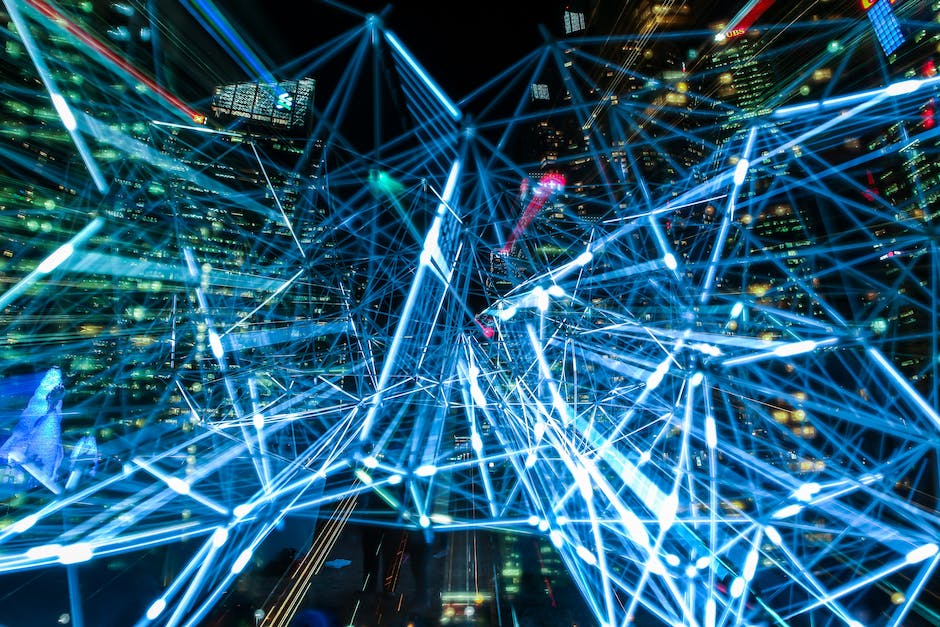Introduction
Artificial Intelligence (AI) has emerged as a transformative technology with the potential to significantly impact various aspects of our lives, including the job market. As AI continues to advance and become more sophisticated, it is expected to bring about both opportunities and challenges for the workforce. This article explores the impact of AI on the job market, examining how it can reshape job roles, create new employment opportunities, and potentially lead to job displacement.
The Role of Artificial Intelligence in Job Automation

Artificial intelligence (AI) has become a buzzword in recent years, and its impact on the job market is undeniable. From self-driving cars to virtual assistants, AI has infiltrated various industries, leaving many wondering about the future of work. In this article, we will explore the role of AI in job automation and how it is reshaping the employment landscape. But don’t worry, we’ll keep it light and sprinkle in some humor along the way!
Let’s start by acknowledging that AI is not a new concept. It has been around for decades, but recent advancements in technology have propelled it into the mainstream. AI is now capable of performing tasks that were once exclusive to humans, leading to concerns about job security. However, before we dive into the impact, let’s take a moment to appreciate the absurdity of some AI applications.
Imagine a world where robots replace humans in every job imaginable. Picture a robot chef whipping up gourmet meals, a robot lawyer arguing cases in court, or even a robot comedian cracking jokes on stage. While these scenarios may seem far-fetched, they highlight the potential of AI to automate various professions. But fear not, my fellow humans, for there are still some tasks that AI struggles to master.
Creativity, emotional intelligence, and critical thinking are areas where AI falls short. Sure, a robot can analyze data and make predictions, but can it write a compelling novel or compose a symphony that moves the soul? I think not! So, while AI may automate certain jobs, it cannot replace the unique qualities that make us human.
Now, let’s get serious for a moment and discuss the impact of AI on job automation. It’s no secret that AI has already started to replace certain roles. Take customer service, for example. Chatbots are becoming increasingly common, providing instant responses to customer inquiries. While this may be convenient, it also means fewer jobs for humans. But fear not, my fellow humans, for there is a silver lining.
As AI takes over mundane and repetitive tasks, it frees up humans to focus on more complex and meaningful work. Instead of spending hours answering the same customer queries, humans can now engage in problem-solving, innovation, and building relationships. So, while AI may eliminate some jobs, it also creates new opportunities for growth and development.
Moreover, AI can augment human capabilities, leading to a symbiotic relationship between man and machine. Think of AI as your trusty sidekick, enhancing your skills and making you more efficient. With AI by your side, you can accomplish tasks faster, make better decisions, and even predict future trends. So, instead of fearing AI, embrace it as a tool that can amplify your potential.
In conclusion, the impact of AI on the job market is undeniable. While it may automate certain roles, it cannot replace the unique qualities that make us human. AI frees us from mundane tasks, allowing us to focus on more meaningful work. It augments our capabilities and empowers us to achieve greater heights. So, my fellow humans, let’s welcome AI with open arms and embrace the exciting possibilities it brings. After all, who knows, maybe one day we’ll have robot comedians that can actually make us laugh!
How Artificial Intelligence is Transforming the Hiring Process
Artificial intelligence (AI) has become a buzzword in recent years, and its impact on the job market cannot be ignored. From self-driving cars to virtual assistants, AI is transforming various industries. One area where AI is making a significant impact is the hiring process. Gone are the days of sifting through stacks of resumes and conducting endless interviews. AI has revolutionized the way companies find and hire talent, making the process more efficient and effective.
Imagine this: you’re a hiring manager with a pile of resumes on your desk. Each one represents a potential candidate, but who has the time to go through all of them? Enter AI, the superhero of the hiring process. With its ability to analyze vast amounts of data in a fraction of the time, AI can quickly identify the most qualified candidates for a job. It can scan resumes, cover letters, and even social media profiles to determine if a candidate is the right fit. No more wasting time on unqualified applicants or missing out on hidden gems.
But AI doesn’t stop at resume scanning. It can also conduct initial interviews, saving hiring managers from the dreaded task of scheduling and conducting countless phone screens. AI-powered chatbots can ask candidates a series of pre-determined questions and analyze their responses. These chatbots can even detect subtle cues in a candidate’s tone and body language, providing valuable insights into their suitability for a role. It’s like having a personal assistant who can read minds, but without the coffee runs.
Of course, AI is not without its quirks. Sometimes, it can misinterpret a candidate’s response or fail to understand sarcasm. After all, humor is a uniquely human trait that AI is still trying to master. But hey, at least it won’t judge you for your terrible jokes, right?
Another way AI is transforming the hiring process is through predictive analytics. By analyzing historical data, AI can predict which candidates are most likely to succeed in a role. It can identify patterns and trends that humans might miss, helping companies make more informed hiring decisions. It’s like having a crystal ball that can tell you which candidate will be the next superstar employee. Just don’t expect it to predict the lottery numbers.
But what about the human touch, you ask? Isn’t hiring all about connecting with people on a personal level? Well, fear not, my friend. AI is not here to replace humans; it’s here to enhance our abilities. By taking care of the repetitive and time-consuming tasks, AI frees up hiring managers to focus on what they do best: building relationships and making informed decisions. It’s like having a personal assistant who can handle all the boring stuff, leaving you to shine in your role.
In conclusion, AI is revolutionizing the hiring process, making it more efficient, effective, and dare I say, fun. From resume scanning to conducting initial interviews, AI is streamlining the process and helping companies find the best talent. Sure, it might not get your jokes, but it can predict who will be the next superstar employee. So, embrace the AI revolution and let it be your hiring superhero.
The Future of Work: Adapting to Artificial Intelligence in the Job Market
The Impact of Artificial Intelligence on the Job Market
Artificial intelligence (AI) has become a buzzword in recent years, and it’s no wonder why. With advancements in technology, AI has the potential to revolutionize various industries, including the job market. But what does this mean for the future of work? Will robots take over our jobs and leave us unemployed? Or will AI create new opportunities that we never thought possible?
Let’s dive into the world of AI and explore its impact on the job market. But before we do, let’s take a moment to appreciate the irony of a robot writing an article about AI’s impact on jobs. Talk about job security!
Now, back to the topic at hand. AI has already made its mark in certain industries, such as manufacturing and customer service. Robots have taken over repetitive tasks that were once done by humans, allowing companies to increase efficiency and reduce costs. But fear not, my human friends, because AI is not here to steal your jobs. It’s here to enhance them.
Think of AI as your trusty sidekick, like Batman’s Robin or Sherlock Holmes’ Watson. It’s there to assist you, not replace you. AI can handle mundane tasks, freeing up your time to focus on more important and creative endeavors. So instead of being a threat, AI can actually be your best friend in the workplace.
But what about those jobs that are at risk of being automated? Well, fear not, my fellow humans, because AI is also creating new opportunities. As technology advances, new roles are emerging that require human skills that robots simply can’t replicate. Skills like creativity, emotional intelligence, and critical thinking are becoming more valuable than ever.
So, if you’re worried about losing your job to a robot, it’s time to upskill and adapt. Embrace the changes that AI brings and find ways to leverage your unique human abilities. After all, robots may be able to crunch numbers and analyze data, but they can’t match the human touch.
And let’s not forget about the jobs that AI is creating. As AI becomes more integrated into our lives, new roles are being created to support and develop this technology. From AI trainers to data scientists, there’s a whole new world of opportunities waiting to be explored.
So, my dear readers, the future of work is not as bleak as some may think. Yes, AI is changing the job market, but it’s not here to replace us. It’s here to enhance our abilities and create new opportunities. It’s up to us to adapt and embrace this technology, rather than fear it.
In conclusion, the impact of AI on the job market is both exciting and promising. It’s a chance for us to evolve and grow, to tap into our unique human skills, and to create a future where humans and AI work together harmoniously. So, let’s welcome our robot colleagues with open arms and show them what we humans are truly capable of. After all, who knows, maybe one day a robot will be writing an article about the impact of humans on the job market. Now wouldn’t that be something?
Conclusion
In conclusion, the impact of artificial intelligence on the job market is significant. While AI has the potential to automate certain tasks and improve efficiency, it also poses a threat to certain job roles. Some jobs may become obsolete or require significant adaptation, while new job opportunities may arise in AI-related fields. It is crucial for individuals and organizations to adapt and upskill to remain competitive in the evolving job market.


